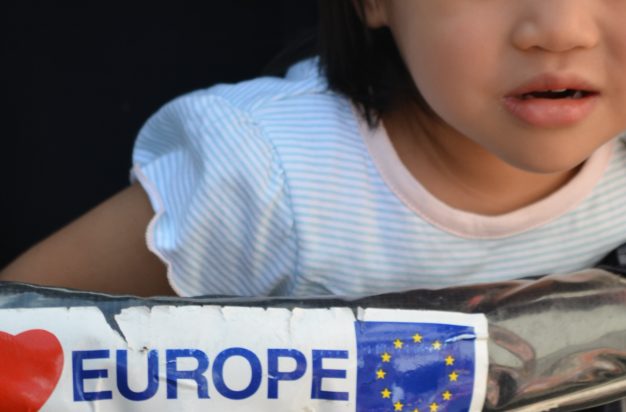
Europe’s new captains: Will they bring children closer to Europe?
A new European Commission is up and running. The UK’s departure from the EU now is cast in stone. As 2019 draws to a close, Eurochild, the child advocacy network, reflects on where the European Union is heading and what it means for Europe’s children.
With the adoption of the Lisbon Treaty in 2009, the EU agreed that the promotion of children’s rights is one of its core objectives. In reality, most of what the EU does ignores children. Even in policy areas directly relevant to children, such as promoting childcare, economic concerns such as increasing parents’ labour market participation take precedence.
Since Eurochild’s creation in 2004, we’ve called out governments’ failure to support vulnerable children and families. By bringing children’s perspective into the EU’s policy coordination cycle (see our 2019 analysis of the European Semester here), we’ve shown that that the EU has an essential role to play – in setting priorities, giving policy guidance, monitoring progress and providing financial incentives.
Perhaps the 2019 institutional change-over is a watershed moment. Whilst we didn’t get the Commissioner for Children we called for this summer, we have a Vice-President for Democracy and Demography – Dubravka Suica – who is tasked with developing a comprehensive strategy on the rights of the child. Together with Nicholas Schmit, Commissioner for Jobs and Social Rights, she will develop a European Child Guarantee, an initiative which has cross-party political support in the European Parliament and increasing backing from Member States.
‘The European Union should be leading from the front’
But achieving a more child-sensitive Europe will be far from plain sailing. As the EU’s priorities take shape, children and families – in particular, those living on the margins of society due to poverty, migration status, disability, or exposure to violence – risk falling out of focus.
We cannot afford to lose this opportunity. Governments across the world are waking up to the centrality of child well-being to healthy societal development. The European Union – as a global champion of human rights and participatory democracy – should be leading from the front. And here’s how:-
• Tackling the climate crisis has rightly rushed to the top of the political agenda. But Europe’s ‘Green Deal’ will fail if it side-lines the social. We urgently need a European framework that reflects the Sustainable Development Goals which combine social, economic and environmental goals, placing child and youth well-being at the centre.
• Secondly, there is no better way of delivering an ‘economy that works for people’ than supporting families with appropriate income support and access to high-quality early childhood education and care, healthcare, education, housing and nutrition.

In fact, Eurochild’s ‘Childonomics’ study clearly shows that when these basic public services function well and are inclusive, there will be less demand for services which to deal with the consequences of social fragmentation. Homelessness, poor mental health, substance abuse, and violence reflect the failure of our social, health and education systems to adequately support children and families. That’s why the Child Guarantee will send such an important political signal to Member States, as well as offering necessary financial incentives.
• Finally, Europe’s democracies are under pressure. Human rights are attacked by disinformation campaigns. Some governments openly undermine agreed rules of law. ‘A new push for European Democracy’ should be among the EU’s top priorities. But will the EU give due attention to the role of child participation? It is wrong to think that citizenship starts with the vote at 18. Children’s involvement in decision-making needs to start from the earliest age.
‘We still have a long way to go and there are many challenges ahead’
By participating fully, children develop critical thinking, confidence and self-reliance – essential in any healthy democracy. The next European Commission wants to stimulate a wide debate on the Future of Europe. We trust this will also involve children.
We remain hopeful the next EU will bring children closer to its heart. We still have a long way to go and there are many challenges ahead. But working together we can make a difference – including with our UK members whose efforts to promote children’s rights in policy and practice has been, and will remain, a key source of inspiration across the continent – whatever happens with Brexit!




